Login
Signup
On The Road To Success
On the road to success: Edumais’s entrepreneurship course
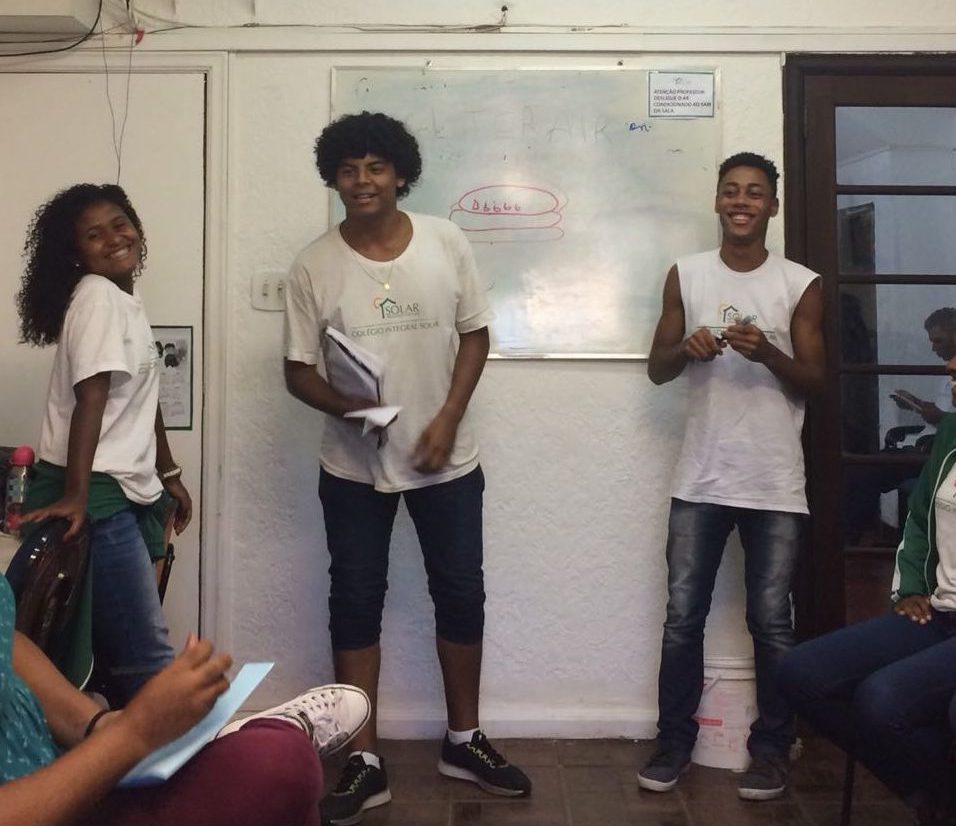
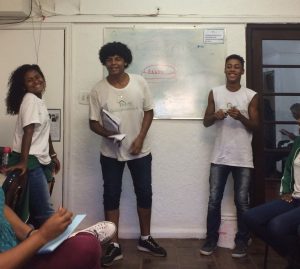 One of the challenges faced by young people from underprivileged backgrounds is the difficulty of picturing themselves in different circumstances. Instead of appearing open to their influence and impact, the wider world can seem like something from which they are irredeemably excluded. As a result, their potential can suffer not so much from a lack of aspiration, as from a lack of awareness of the possible avenues available to them.
One of the challenges faced by young people from underprivileged backgrounds is the difficulty of picturing themselves in different circumstances. Instead of appearing open to their influence and impact, the wider world can seem like something from which they are irredeemably excluded. As a result, their potential can suffer not so much from a lack of aspiration, as from a lack of awareness of the possible avenues available to them.
Aware of these issues, Anna Bowman hit on a bright idea while planning Edumais’s English classes for the final-year pupils of Solar Meninos de Luz: why not combine the students’ English learning with a course on entrepreneurship, thereby exposing them to different fields? As well as expanding their practical vocabulary, the hope was that the students would also develop business skills and experiences that would serve them in good stead once they left school.
Anna contacted Novos Líderes Empreendedores – a local NGO in Rio de Janeiro that provides commercial education to children and adults residing in less privileged areas of the city – to seek their collaboration with the design of the course. Then, with Anna calling on her background as both a Business and Operations Manager – and Thaís, one of the students’ maths teachers, calling on hers in radio and advertising – the course template supplied by Novos Líderes Empreendedores was adapted to the particular needs and capabilities of Edumais’s students.
The result was a course that would see the students design a business project from beginning to end while continuing to work on the development of their English. Running for two hours a week – with Anna taking the first part of the class focussed on practical issues and English, and Thaís the second part on more theoretical considerations – the 17-20-year-old students of Ensino Medio 3 were to be provided with the opportunity to picture themselves as business owners.
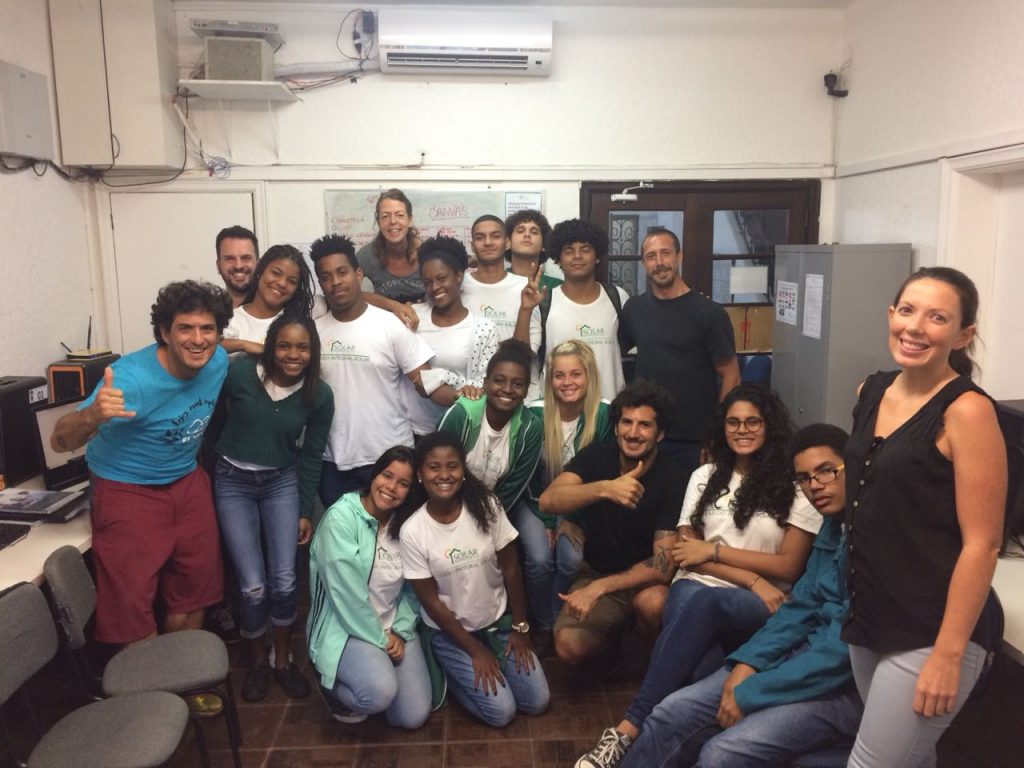
The entrepreneurship group with the owners of El Misti Hostel
The course is now at its halfway stage and the students’ entrepreneurial plans have already started to take shape. The first few sessions of the course were predominantly spent brainstorming, helping the students to find the creative inspiration for their project. They were encouraged to think about their passions, as well as societal problems and needs in Rio de Janeiro and beyond.
Once a problem was identified – such as the fact that bus stops can be dangerous in Rio – the students were then asked: so how could we solve it? Why is it important? Is it something people would value? Working in pairs, students began to formulate their responses. In the case of bus stop safety, for instance, one group proposed increased lighting and security cameras to try and avert violent crime, which many people fall victim to simply on their daily commute to, or from, work.
After the students had selected their project, they began to do their research, which was documented in English. They were introduced to Canva to help with the design of things like their company logos, and to Canvas, an online business development site to assist them through the planning stages.
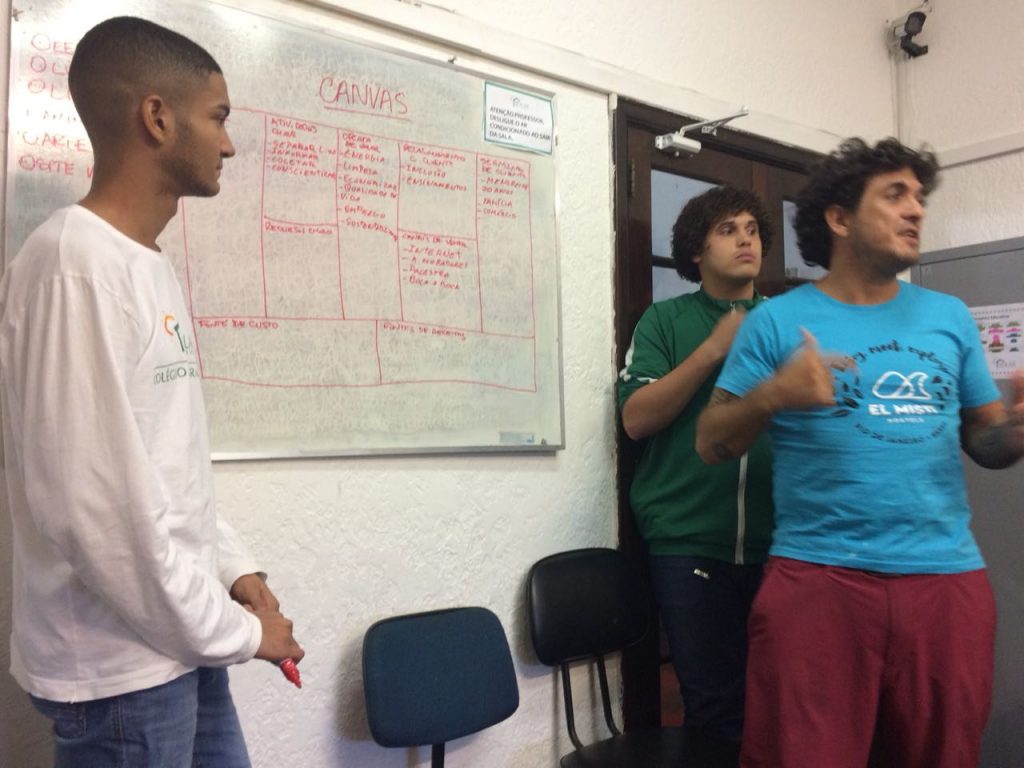
Using Canvas to work on their business plans
As their ideas started to assume a more concrete form, the students were given extra inspiration by the visits of several guest speakers. Successful Brazilian entrepreneurs – such as the Director of Holy Fancy, a sustainable backpack company, and the owners of El Misti Hostel – came to share the stories of their businesses, elaborating upon the challenges they had faced and overcome. Their journeys from humble beginnings to economic success energised the students, giving them a far greater sense of what might be possible for them, too.
What’s more, inspiration often worked both ways. One guest Anna sourced through her professional network, Roberto, was so impressed by the students that he decided to return and continue helping out on the course. As well as adding his own business experience as a B2B consultant into the mix, Roberto’s rapport with the students has only further contributed to the aspirational atmosphere within the classroom.
Indeed, although late teenagers and young adults are not exactly famed for their vigour and enthusiasm, there is a palpable vibe of curiosity and excitement among the group, who by all accounts are thoroughly enjoying the course. They are frequently asking questions and developing a get-up-and-go attitude as they explore what it might be like to actually be a business owner themselves.

Students bidding in an auction of life goals
This sense of ambition is demonstrated by the fact that one group is attempting to simultaneously address two problems – dirty streets and an unreliable electricity supply – by collecting rubbish and burning it for energy. They have managed to show their eye for wordplay in English too: the company is called TrashLight.
Both TrashLight and the bus stop security business mentioned earlier are emblematic of the social awareness of the students on the entrepreneurship course. Despite planning for-profit businesses, they evidently hope to use entrepreneurial skills to better the community in which they live. Indeed, when I helped out at one of the classes a few weeks ago, it was not just the breadth of the students’ ideas that struck me, but also the depth of social conscience running through them.
Other plans include an animal shelter and a school supplies business, respectively aiming to tackle the issues of abandoned animals on the street and under-equipped schools and pupils. Further social enterprise has seen the proposal of a sports program to address the lack of fitness opportunities in the community; a plan to remove derelict cars to clear space on the already cramped streets; and the creation of an art project to transform the community’s image from neglected grubbiness into a space of beauty.
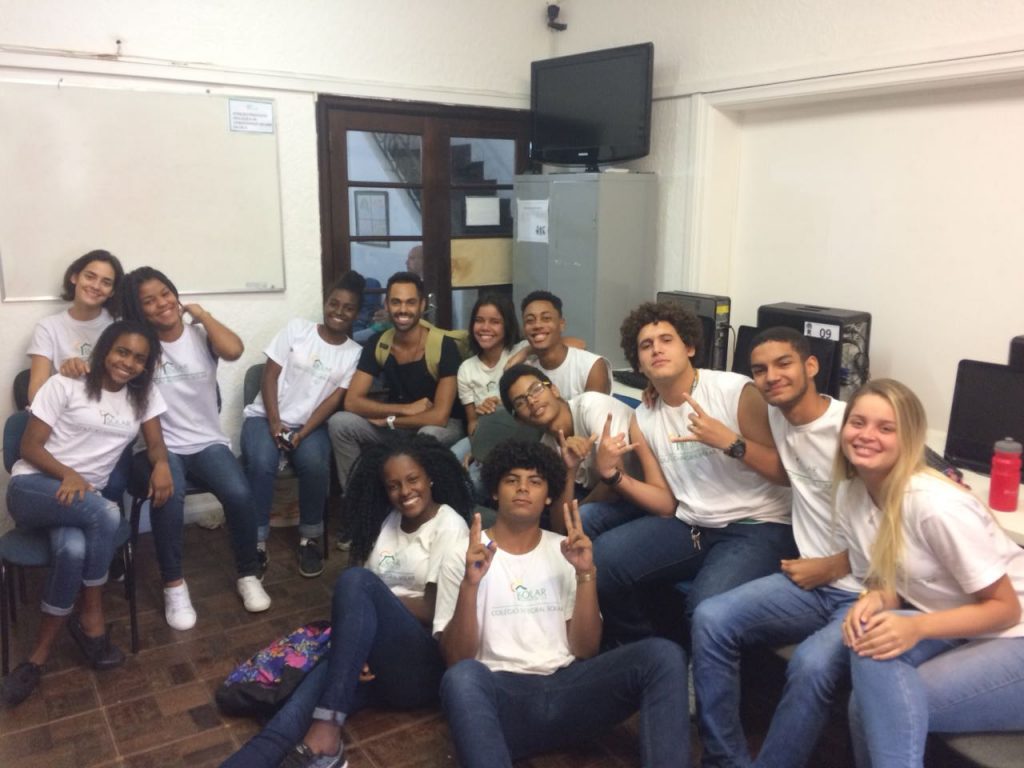
The entrepreneurship group with the Director of Holy Fancy
Recently, the students demonstrated their progress, with both their business plans and English, by making short videos of elevator pitches for their project or service. Talking for roughly one minute in English, the students worked on their rapport building skills, creating an interest in their project by first highlighting the particular issue they are seeking to address and then offering their proposed solution.
So impressive were their pitches that Anna and Thaís’s original idea to award prizes to two winners and two runners-up had to be reassessed. Unable to decide on the runners-up, in the end they awarded an additional two runners-up prizes to recognize the incredibly high standard of the students’ efforts.
Equally satisfying from their perspective, however, was the progress shown by pupils who had originally thought they would not be able to do it. Stepping outside of their comfort zones and practising their English speaking, these students grew in confidence and obtained a real sense of achievement, a particularly gratifying experience not only for them but for their teachers, too.
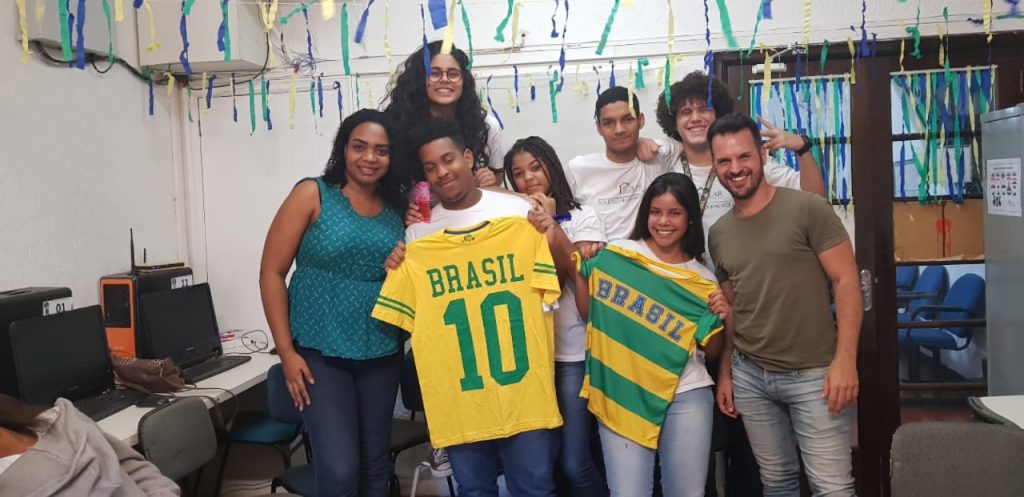
Elevator pitch winners and runners-up with Thaís and Roberto
Having delivered their elevator pitches and received positive feedback on them, the students should now have the self-assurance to carry out the final assessment on the course, a presentation of their entire portfolio in English at the end of the school year. Although this is still several months away, there is already hope that some of their projects may even come to fruition outside of the classroom. Should this happen, plans are being formulated to mentor the students to help them get their businesses off the ground.
Even for those whose projects will go no further than the school assessment process, the course is undoubtedly equipping them with a wide range of tools that will serve them well in their post-school life. They will all have created and thoroughly planned a business, picking up valuable skills such as sales, social media marketing, communication strategies, and event planning along the way.
Perhaps most importantly of all, though, is that all the students will have been exposed to an array of possibilities. These talented young people have a bright future ahead of them and Edumais’s entrepreneurship course is providing them with an invaluable opportunity to experiment with what they might want to do, to become. We will keep you posted about how they get on with their final projects!

Author
Zac Rowlinson, Office Support Volunteer at Edumais
Leave a Comment:
You must be logged in to post a comment.